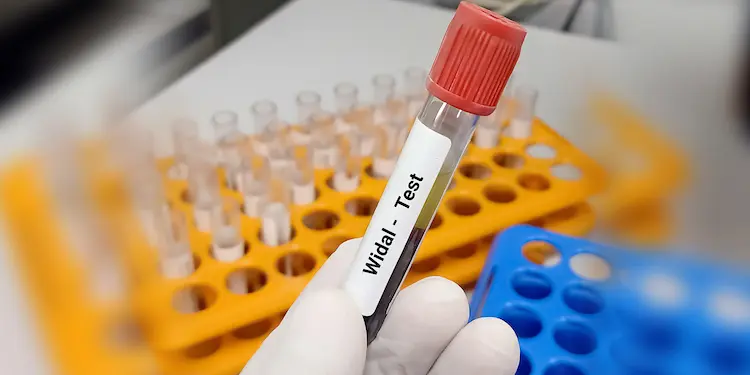Nov . 07, 2024 12:03 Back to list
H Pylori Rapid Test Supplier for Wholesale Distribution and Private Labeling Options
Understanding Wholesale H. Pylori Rapid Test Kits A Supplier's Perspective
In recent years, the demand for rapid diagnostic tests has surged globally, particularly in the field of gastroenterology. One such test that has gained considerable attention is the Helicobacter pylori (H. pylori) rapid test. H. pylori is a type of bacteria that infects the stomach lining and is a primary cause of various gastrointestinal disorders, including peptic ulcers and gastric cancer. This article explores the wholesale supply of H. pylori rapid test kits, shedding light on their significance, functionality, and the factors influencing the wholesale market.
The Importance of H. Pylori Testing
Accurate and timely diagnosis of H. pylori infections is crucial for effective treatment. Traditional diagnostic methods, such as endoscopy and biopsy, can be invasive and time-consuming. In contrast, rapid test kits offer a non-invasive and swift alternative, allowing for immediate results. This is particularly beneficial in clinical settings where quick decision-making is vital.
The H. pylori rapid test typically works on the principle of immunochromatography, where antibodies against H. pylori antigens are used to detect the presence of the bacteria in a patient’s stool or serum. The convenience and ease of use of these kits make them an essential tool for healthcare providers.
Features of H. Pylori Rapid Test Kits
Wholesale suppliers of H. pylori rapid test kits provide various features that distinguish their products in the market
1. Accuracy and Reliability Modern kits are designed to be accurate, with sensitivity and specificity rates that exceed traditional methods. This reliability is essential for patient trust and effective treatment plans.
2. Ease of Use Most rapid test kits are user-friendly, requiring minimal training. This makes them suitable for various healthcare settings, including outpatient clinics and pharmacies.
3. Rapid Results As the name implies, rapid tests provide results in a short period, often within 15 to 30 minutes. This quick turnaround time allows healthcare professionals to make immediate treatment decisions.
wholesale h pylori rapid test supplier

4. Portability Many suppliers offer kits that are compact and easy to transport, enabling healthcare providers to use them in various locations, including remote or underserved areas.
Factors Influencing the Wholesale Market
The wholesale market for H. pylori rapid test kits is influenced by several factors
1. Global Health Trends With increasing awareness of gastrointestinal diseases and their implications on overall health, more healthcare providers are incorporating these rapid tests into their diagnostic protocols. This growing demand drives suppliers to scale their production and reach.
2. Regulatory Approvals The regulatory landscape for medical devices significantly influences the wholesale supply chain. Suppliers must navigate various regional regulations to ensure that their kits meet safety and efficacy standards. Compliance with guidelines set forth by health organizations can also enhance a supplier’s reputation and market reach.
3. Technological Advancements Continuous advancements in diagnostic technology contribute to the development of more efficient and accurate test kits. Suppliers who invest in research and development can offer cutting-edge products that attract healthcare providers.
4. Competitive Pricing The price of test kits plays a crucial role in purchasing decisions. Wholesale suppliers must balance quality with affordability, ensuring that their products remain accessible without compromising accuracy or reliability.
5. Education and Training Suppliers that provide comprehensive training and support for healthcare professionals can gain a competitive edge. Educating practitioners about the benefits and proper use of these kits fosters trust and encourages widespread adoption.
Conclusion
The wholesale supply of H. pylori rapid test kits represents a vital segment of the healthcare diagnostics market. As the demand for quick and reliable testing continues to grow, suppliers play a crucial role in ensuring that high-quality products are available to healthcare providers worldwide. By focusing on accuracy, ease of use, and cost-effectiveness, suppliers can contribute significantly to improving patient outcomes in gastrointestinal health. As the industry evolves, ongoing collaboration between suppliers, healthcare providers, and regulatory bodies will be essential to address the challenges and opportunities that lie ahead in the realm of rapid diagnostics.
-
Highly Accurate hCG Pregnancy Test Strips - 5 Min Results
NewsAug.02,2025
-
Premium Empty ABS Plastic Cassettes: Durable & Lightweight Storage
NewsAug.01,2025
-
Accurate Cocaine (Coc) Rapid Test Kit | Fast & Reliable Detection
NewsJul.31,2025
-
Accurate HCG Pregnancy Test Strips | Fast Home Use Kit
NewsJul.31,2025
-
Reliable Early Pregnancy Test Kit Supplier - Multi Plastic Cassette Options
NewsJul.30,2025
-
Transferrin Rapid Test Cassette – Reliable Tumor Marker Detection
NewsJul.29,2025

